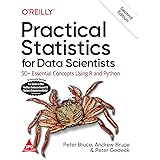Python Ultimate Cheat Sheet for Data Science
Python Ultimate Cheat Sheet for Data Science, Pandas, Numpy, and Scikit-Learn are among the most popular libraries for data science and analysis using Python.
We’ll list some of the most popular and practical capabilities from these packages in this Python cheat sheet for data science.
Numpy is used for lower-level scientific computation. Pandas is built on top of Numpy and designed for practical data analysis in Python. You can use a variety of machine learning models that Scikit-Learn includes right out of the box.
Why Python is an Important and Useful Programming Language »
Data Importing
Obtaining some data is the first step in any type of data analysis. Pandas give you plenty of options for getting data into your Python workbook.

Analyzing Data
Best Books to learn Python for Beginners » finnstats

Selecting
In order to inspect or conduct further analysis on the data, you may frequently need to choose just one element or a specific subset of the data. These methods will come in handy.

Data Cleaning
It is likely that you will need to clean up the data if you are using real-world examples. These are some helpful methods.

Filter, Sort, and Group By
Methods for filtering, sorting, and grouping your data.

Joining and Combining
Methods for combining two data frames.

Writing Data
And finally, when you have created results with your research, there are numerous methods you can export your data.
List in the Python programming language »

Machine Learning
There are practical techniques for developing and using machine learning models in the Scikit-Learn library.
Python Ultimate Cheat Sheet for Data Science


Conclusion
We’ve just scraped the surface in terms of what you can accomplish with Python and data science, but we hope this Python cheat sheet for data science has given you a taste of what you can do!
Types of Numbers and Calculations in Python »






